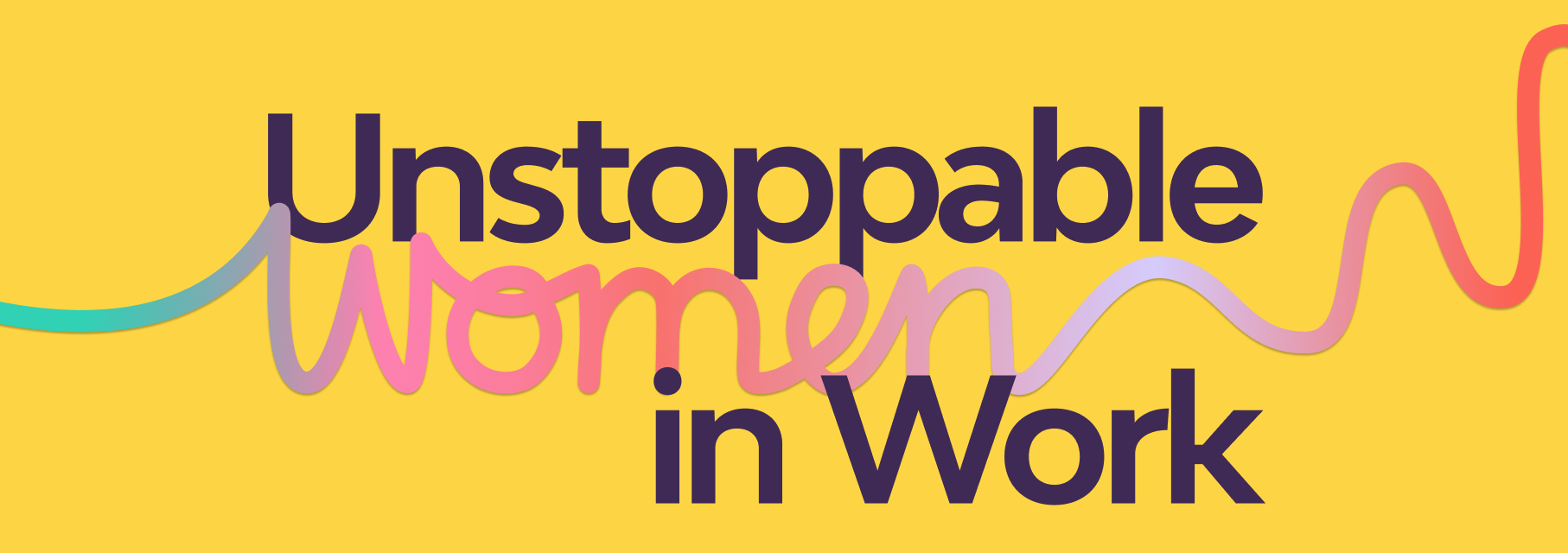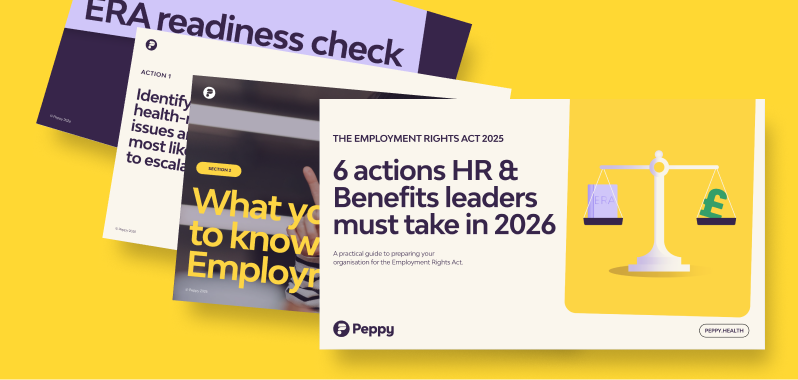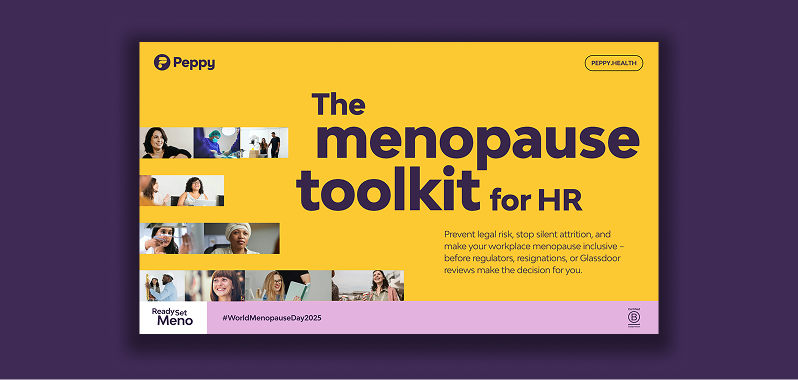Experiencing a miscarriage is massively traumatic, both physically and emotionally, with long-term feelings of grief and loss. Whether you’re a close friend, family member, colleague or line manager, this is a difficult issue to tackle. But it needs to be tackled – with sensitivity. Says Francesca Steyn, Peppy’s VP Clinical: “A lot of people don’t tell their employer when they have a miscarriage because they just don’t know what to say – and most companies don’t have policies in place that cover miscarriage. It can be really difficult to be at work while struggling with your emotions and maybe having to keep running to the toilet because you’re bleeding heavily. Many in this situation will end up taking time off sick or annual leave when they really shouldn’t need to do that”. Here are the dos and don’ts from Francesca, an expert in fertility with 15+ years of experience.
If a colleague has had a miscarriage, let them know you are available if they need to talk. Miscarriages often get overlooked and treated as a minor issue, but they may be experiencing grief, trauma, sadness and even shame. Says Francesca: “No one talks about miscarriage, like it’s a shameful thing to happen. A woman can feel ashamed that she got pregnant but couldn't keep her baby and this makes it a subject that’s not up for discussion”. Let them know you’re there if they need you. With 1 in 4 couples experiencing baby loss , you may have been through it yourself, in which case be open about your experiences.
Being able to support staff and colleagues through their loss means knowing what you’re talking about when it comes to why miscarriage happens, how best to get through it and the kind of support that really makes a difference.
It's inconceivable to have to show up and try and be your normal self when you're going through something so cataclysmic in your life. So if someone has just been through a miscarriage, make sure they know the company is right behind them and they should take their time to reintegrate. Offering support in the week they return to work is not enough. Being able to have open conversations with their line manager or HR department in the coming months will be crucial to someone who’s been through miscarriage. Says Francesca: “Recognise that the grief is not going to go away in a couple of weeks or months. Have an open-ended policy offering support for as long as they need”.
A Pregnancy Loss Review was published earlier this month, highlighting improvements needed to ensure anyone experiencing pregnancy loss gets the care and support they need. This includes better counting and reporting of miscarriages so the full picture of pregnancy loss across the UK can be understood, access to high quality bereavement care for parents, and bereavement care training for healthcare professionals. As an employer you should familiarise yourself with the review so that you’re able to support any colleagues going through pregnancy loss. You can find more details about the report here.
In the case of an employee having a miscarriage, updating colleagues on the situation before they come back to work will make things less traumatic for them, so they won’t have to keep repeating the painful details. Also this eradicates those awkward “How’s the pregnancy going?” conversations, and also opens up opportunities for meaningful support. “There should be a designated person in the workplace to talk to in the case of miscarriages,” says Francesca. “But also the likelihood is that in a fairly big organisation there'll be a lot of people who have experienced it too and may be able to offer support and understanding”.
“Companies need a policy in place to support people going through miscarriage. This may include offering flexible working and time off for the grieving process, a designated staffer to talk to about it, whether that’s their line manager or someone else, as well as support groups or counselling,” advises Francesca.
People don’t always know what to say for the best. But it’s important not to minimise what has happened. Trying to be reassuring by saying “You can try again” and “You know, it happens to so many people” is just not helpful, as it can make the person who's just lost a baby feel like their feelings are almost being dismissed. “Sometimes people say: ‘You got pregnant so it’ll happen again’. But that’s not always the case,” says Francesca. Some people sadly can’t carry a baby to term and it can be really painful to hear potentially unrealistic reassurances when your longed-for baby has just died.
We can be embarrassed at the thought of saying the wrong thing and causing further upset to a bereaved colleague. But just like if they’d lost any family member, offering condolences and support is vital, so they know you care. Says Francesca “However they won't want people to pity them or feel sorry for them,”. They may not want to talk about it of course, but the offer needs to be there – when they are ready.
While feeling compassion and understanding for a woman who’s lost a baby, people often overlook the feelings of their partner who, after all, has lost their baby too. The man or partner may feel frustrated, angry and powerless to help their partner, coupled with a sense of failure. Says Francesca: “Having to be strong for their partner and bury their emotions can really take its toll. “Don’t forget that they're grieving too and this will impact on their mental health and productivity, just like with their partner who’s physically experienced the miscarriage”.
The grief of miscarriage, like any form of grief, can be long-term. Research by Imperial College London found that a month on from experiencing miscarriage or ectopic pregnancy, nearly a third of women suffer from post-traumatic stress, a quarter experienced severe anxiety and one in 10 had moderate to severe depression. Nine months later, 18 per cent of women had post-traumatic stress, 17 per cent moderate to severe anxiety, and 6 per cent had moderate to severe depression. It also impacts future anxiety about having children or trying to conceive. “Recognise that this is not going to go away in three months’ time so have an open-ended policy offering support for the life of the employment. Counselling, flexible working at crucial times and conversations with your line manager if needed should all be available long-term,” says Francesca.
We hope these tips will help you navigate the subject of miscarriage and baby loss in your organisation. For more information, join a webinar about Peppy Fertility or specifically on miscarriage support in the workplace: https://info.peppyhealth.com/how-to-offer-expert-miscarriage-support-at-work Peppy's miscarriage support service aims to support users at a time that can be both physically and emotionally difficult. We aim to come alongside the user in the form of consultations and chat to help them understand possible next steps and to provide that emotional understanding and support. We are able to advice about possible investigations, treatment next steps and signpost to helpful articles, links and resources all while being there on the chat.
https://theconversation.com/the-dos-and-donts-of-supporting-women-after-a-miscarriage-98163 https://www.imperial.ac.uk/news/194715/miscarriage-ectopic-pregnancy-trigger-long-term-post-traumatic/
What you should do…
Acknowledge what’s happened
If a colleague has had a miscarriage, let them know you are available if they need to talk. Miscarriages often get overlooked and treated as a minor issue, but they may be experiencing grief, trauma, sadness and even shame. Says Francesca: “No one talks about miscarriage, like it’s a shameful thing to happen. A woman can feel ashamed that she got pregnant but couldn't keep her baby and this makes it a subject that’s not up for discussion”. Let them know you’re there if they need you. With 1 in 4 couples experiencing baby loss , you may have been through it yourself, in which case be open about your experiences.
Know the basics about miscarriage and baby loss
Being able to support staff and colleagues through their loss means knowing what you’re talking about when it comes to why miscarriage happens, how best to get through it and the kind of support that really makes a difference.
Keep an open-door policy
It's inconceivable to have to show up and try and be your normal self when you're going through something so cataclysmic in your life. So if someone has just been through a miscarriage, make sure they know the company is right behind them and they should take their time to reintegrate. Offering support in the week they return to work is not enough. Being able to have open conversations with their line manager or HR department in the coming months will be crucial to someone who’s been through miscarriage. Says Francesca: “Recognise that the grief is not going to go away in a couple of weeks or months. Have an open-ended policy offering support for as long as they need”.
Familiarise yourself with the new Pregnancy Loss Review
A Pregnancy Loss Review was published earlier this month, highlighting improvements needed to ensure anyone experiencing pregnancy loss gets the care and support they need. This includes better counting and reporting of miscarriages so the full picture of pregnancy loss across the UK can be understood, access to high quality bereavement care for parents, and bereavement care training for healthcare professionals. As an employer you should familiarise yourself with the review so that you’re able to support any colleagues going through pregnancy loss. You can find more details about the report here.
Offer to tell others at work
In the case of an employee having a miscarriage, updating colleagues on the situation before they come back to work will make things less traumatic for them, so they won’t have to keep repeating the painful details. Also this eradicates those awkward “How’s the pregnancy going?” conversations, and also opens up opportunities for meaningful support. “There should be a designated person in the workplace to talk to in the case of miscarriages,” says Francesca. “But also the likelihood is that in a fairly big organisation there'll be a lot of people who have experienced it too and may be able to offer support and understanding”.
Offer meaningful employee benefits
“Companies need a policy in place to support people going through miscarriage. This may include offering flexible working and time off for the grieving process, a designated staffer to talk to about it, whether that’s their line manager or someone else, as well as support groups or counselling,” advises Francesca.
- Help them access a support group through work (in person or virtually)
- Or through Peppy (group chat and group live events)
- Or online at https://www.miscarriageassociation.org.uk/how-we-help/support-groups/
What not to do…
Offer platitudes or cliches
People don’t always know what to say for the best. But it’s important not to minimise what has happened. Trying to be reassuring by saying “You can try again” and “You know, it happens to so many people” is just not helpful, as it can make the person who's just lost a baby feel like their feelings are almost being dismissed. “Sometimes people say: ‘You got pregnant so it’ll happen again’. But that’s not always the case,” says Francesca. Some people sadly can’t carry a baby to term and it can be really painful to hear potentially unrealistic reassurances when your longed-for baby has just died.
Shy away from the person or the conversation
We can be embarrassed at the thought of saying the wrong thing and causing further upset to a bereaved colleague. But just like if they’d lost any family member, offering condolences and support is vital, so they know you care. Says Francesca “However they won't want people to pity them or feel sorry for them,”. They may not want to talk about it of course, but the offer needs to be there – when they are ready.
Forget about the father (or partner)
While feeling compassion and understanding for a woman who’s lost a baby, people often overlook the feelings of their partner who, after all, has lost their baby too. The man or partner may feel frustrated, angry and powerless to help their partner, coupled with a sense of failure. Says Francesca: “Having to be strong for their partner and bury their emotions can really take its toll. “Don’t forget that they're grieving too and this will impact on their mental health and productivity, just like with their partner who’s physically experienced the miscarriage”.
- Here’s a useful resource: https://www.tommys.org/about-us/charity-news/dads-feel-heartbreak-miscarriage-too
Stop supporting them too soon
The grief of miscarriage, like any form of grief, can be long-term. Research by Imperial College London found that a month on from experiencing miscarriage or ectopic pregnancy, nearly a third of women suffer from post-traumatic stress, a quarter experienced severe anxiety and one in 10 had moderate to severe depression. Nine months later, 18 per cent of women had post-traumatic stress, 17 per cent moderate to severe anxiety, and 6 per cent had moderate to severe depression. It also impacts future anxiety about having children or trying to conceive. “Recognise that this is not going to go away in three months’ time so have an open-ended policy offering support for the life of the employment. Counselling, flexible working at crucial times and conversations with your line manager if needed should all be available long-term,” says Francesca.
Conclusion
We hope these tips will help you navigate the subject of miscarriage and baby loss in your organisation. For more information, join a webinar about Peppy Fertility or specifically on miscarriage support in the workplace: https://info.peppyhealth.com/how-to-offer-expert-miscarriage-support-at-work Peppy's miscarriage support service aims to support users at a time that can be both physically and emotionally difficult. We aim to come alongside the user in the form of consultations and chat to help them understand possible next steps and to provide that emotional understanding and support. We are able to advice about possible investigations, treatment next steps and signpost to helpful articles, links and resources all while being there on the chat.
Peppy Tips
- If a colleague has had a miscarriage, let them know you are available if they need to talk.
- Offer meaningful employee benefits like flexible working, support groups and counselling.
- Know your facts so you can be as helpful and supportive as possible.
-1.png?width=600&height=450&name=Untitled%20design%20(8)-1.png)




